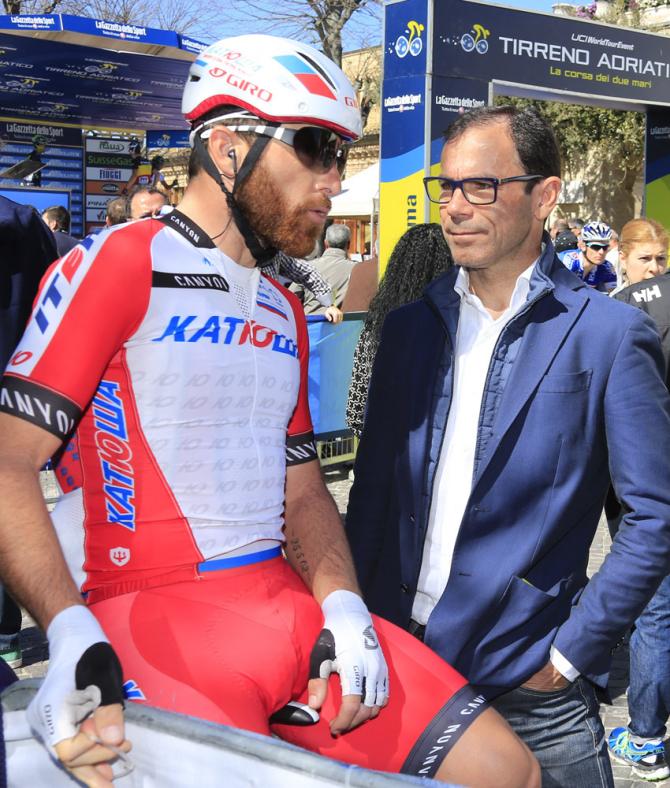Cassani on the demise of Italian cycling
"We've got lots of problems but money is only one of them"

New Italian national coach Davide Cassani has admitted that Italian cycling faces an uphill struggle if it is to hold its own as professional cycling becomes more and more globalised and Italian cycling become poorer and poorer.
Cassani was at the pre-race Giro del Trentino press conference to be awarded the "Ciclismo Vita Mia" award. He was a modest but dedicated professional rider for 15 seasons between 1982 and 1996. He then worked as a television commentator for Italian state TV for 18 years before became Italian national coach in January this year after Paolo Bettini opted to join Fernando Alonso's WorldTour team project.
"I've got to admit that I'm not happy for results the Italian riders have achieved so far this season," Cassani said during the event when reminded that the best Italian rider at Pais-Roubaix was Filippo Pozzato in a lowly 50th place. Enrico Gasparotto and Davide Rebellin finished in the top 15 at the Amstel gold Race but Diego Ulissi again struggled on the WorldTour stage.
"I'm an eternal optimist and so I hope they'll go well at the end of the season, at the world championships, which is the race that really matters to me."
"Unfortunately we've lost a generation of riders for lots of different reasons and are going through what I hope is a low point. Belgian cycling is enjoying a good moment with Gilbert and Boonen but they will also face a similar problem when their best riders get old in a few years."
"There are some good Italian riders coming through but they need more time to develop. I'm talking about riders like Ulissi, Sonny Colbrelli of Bardiani CSF and Fabio Aru of Astana, who we will see in action at the Giro del Trentino and the Giro d'Italia."
The root cause of the problem
The latest race content, interviews, features, reviews and expert buying guides, direct to your inbox!
Cassani believes that one of the root causes of Italian cycling is because of a lack of international races at under 23 level. A decade ago, Italian riders were unbeatable. Now they struggle to leave their mark in the under 23 Nations Cup races.
"The problem of Italian cycling starts at the very roots of the sport," he said.
"We've got lots of easy regional races where riders become big fish in little ponds but we've lost international stage races like the Giro delle Regioni and the GiroBio, where our riders could face the best international competition. Now I fear Italian riders don't have the best possible development and so then struggle when they become professionals."
"We're trying to change things. We're riding the under 23 Nations Cup this year and the juniors rode Paris-Roubaix but it's not easy. We've got lots of problems but money is one of them. If I'm not wrong, the budget of the British Federation is five times ours."
"We've got to try spend our cash as wisely as possible but most of all we've got to change the mentality of many of the Italian teams and riders. Great Britain and Australia have proved that you can't develop the best possible team just via road racing. You need to develop riders via BMX, mountain bike and especially the track. We have to do that a lot more."
"In recent years Australia and Great Britain have done amazing things. We used to teach the secrets of cycling to everyone else, now they're showing us how to do it. We've been left behind and have to start learning from what others countries are doing."

Stephen is one of the most experienced member of the Cyclingnews team, having reported on professional cycling since 1994. He has been Head of News at Cyclingnews since 2022, before which he held the position of European editor since 2012 and previously worked for Reuters, Shift Active Media, and CyclingWeekly, among other publications.